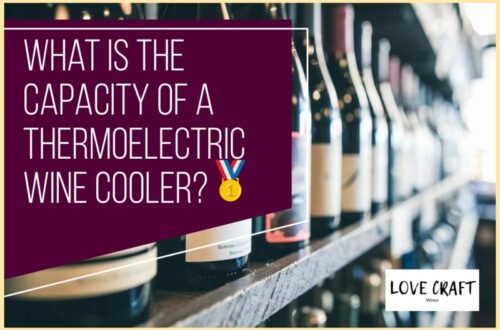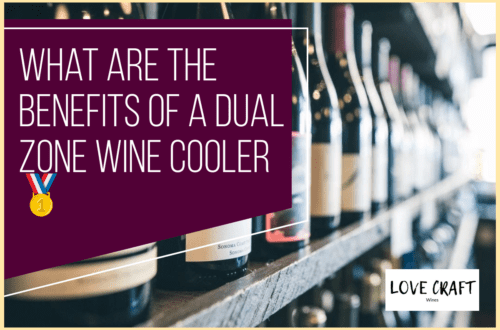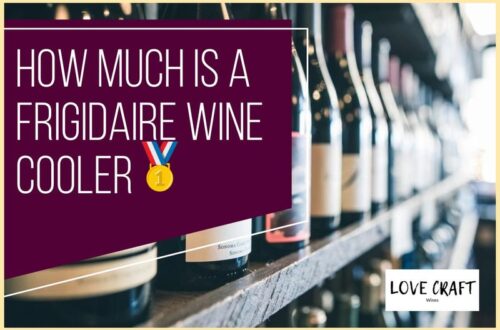Are you trying to cut back on sugar and carbs in your diet but still want to enjoy a glass of wine every now and then? You’re not alone. With more people becoming health-conscious, low sugar and low carb wine has become a popular option.
But with so many varieties of wine available, it can be overwhelming to know which ones to choose. In this article, we will guide you through the best wine options for low sugar and carbs, so you can sip and savor without the guilt.
Before we dive into the best wine options, it’s essential to understand the sugar and carb content in wine. Wine is made from grapes, which naturally contain sugar. When the grapes are fermented, the yeast eats up the sugar, turning it into alcohol. However, some residual sugar may be left in the wine, depending on the fermentation process and the winemaker’s choices. Additionally, some wines may have added sugars or sweeteners, which can increase the sugar content.
Understanding these factors will help you make informed decisions when choosing a low sugar and carb wine.
Table of Contents
Understanding Sugar and Carb Content in Wine
Understanding the levels of sugar and carbohydrates present in different varietals can assist in making informed decisions when selecting a suitable wine.
Calculating sugar content is an essential aspect of this process. When grapes are fermented, yeast breaks down the sugars, converting them into alcohol. The amount of sugar remaining in the wine after fermentation determines its sweetness level.
Some wines, such as dessert wines, have a high sugar content, while others are dryer due to lower residual sugar levels.
Another essential factor to consider is the importance of fermentation. Wines that undergo a longer fermentation process tend to have lower sugar and carb content. This is because the yeast has more time to convert the sugar into alcohol, resulting in a dryer wine.
In contrast, wines with a shorter fermentation period may have a higher sugar content, making them sweeter. Understanding these factors can help you select a wine that aligns with your dietary preferences.
Next, we’ll explore choosing naturally low sugar and carb wines.
Choosing Naturally Low Sugar and Carb Wines
If you’re looking for a healthier choice in alcoholic beverages, consider exploring the world of naturally low-sugar and carb wines.
Organic wine options are a great place to start, as they are made without the use of synthetic fertilizers and pesticides, which can often result in higher sugar content.
Additionally, sparkling wine alternatives, such as Prosecco or Cava, tend to have lower sugar and carb content compared to traditional champagne.
When selecting a naturally low-sugar and carb wine, it’s important to pay attention to the alcohol content, as higher alcohol levels can also contribute to a higher sugar content.
Look for wines with an alcohol content of 13% or lower.
Some grape varieties to consider include Pinot Noir, Cabernet Sauvignon, and Chardonnay.
These wines tend to have lower sugar and carb content compared to sweeter varieties like Riesling or Moscato.
However, it’s important to note that even naturally low-sugar and carb wines should still be consumed in moderation.
Avoiding wines with added sugars and sweeteners is the next step in finding the best wine options for low sugar/carbs.
Avoiding Wines with Added Sugars and Sweeteners
To truly make a healthy choice when it comes to alcoholic beverages, it’s crucial to steer clear of wines that contain added sugars or sweeteners, as these can easily undermine your efforts to maintain a wholesome lifestyle.
When selecting a wine, it’s essential to inspect the label and look out for any artificial sweeteners, such as high fructose corn syrup, dextrose, or sucrose. These artificial sweeteners are often added to wine to enhance the taste and create a sweeter flavor profile. However, they can significantly increase the sugar and calorie content of the wine, making it a less healthy option.
Instead, opt for wines that are naturally low in sugar and carbs. Some wines that fit this category include dry white wines, such as Sauvignon Blanc, Pinot Grigio, and Chardonnay. These wines are typically lower in sugar and calories compared to sweet white wines, such as Rieslings or Moscatos.
Additionally, red wines, such as Cabernet Sauvignon, Merlot, and Pinot Noir, are also great low-sugar options. These wines tend to have higher tannin content, which gives them a more complex flavor profile and a drier taste.
Exploring Red Wine Options
Now, let’s take a journey into the world of red wines and discover which ones would be perfect for you to try on your next evening out.
Red wines contain antioxidants that have great health benefits, such as reducing inflammation and improving heart health. Additionally, red wines have lower sugar content than their white counterparts, making them a great option for those looking for low sugar/carb options.
When it comes to pairing suggestions, red wines pair well with a range of foods, including steak, roasted vegetables, and hearty pasta dishes.
Some great red wine options for low sugar/carbs include Cabernet Sauvignon, Pinot Noir, and Merlot. Cabernet Sauvignon is a full-bodied wine that pairs well with bold flavors, while Pinot Noir is a lighter option that pairs well with seafood and poultry dishes. Merlot is a medium-bodied wine that pairs well with a range of foods, making it a versatile option for any meal.
So, next time you’re out for dinner, consider trying one of these red wine options for a delicious and low sugar/carb-friendly drink.
As we move into exploring white wine options, keep in mind that white wines tend to have higher sugar content than red wines. This doesn’t mean that you have to avoid white wines altogether, but it does mean that you should be more mindful when selecting your wine.
Let’s take a closer look at some white wine options that are lower in sugar and carbs.
Exploring White Wine Options
You’ll be delighted to discover the world of white wines with their varying levels of sweetness and diverse flavor profiles, offering a range of choices to suit your palate.
When looking for low sugar/carb options, here are some excellent choices to consider:
-
Sauvignon Blanc – This crisp and refreshing wine has a bright acidity that pairs well with seafood and salads. Its aging potential is generally limited, so it’s best to drink it within a few years of vintage.
-
Pinot Grigio – With its light body and citrus notes, Pinot Grigio is a versatile wine that can be paired with a variety of dishes. It’s typically best consumed young, within a year or two of vintage.
-
Chardonnay – This popular wine can range from buttery and oaky to light and crisp, depending on the region and winemaking style. It pairs well with chicken, fish, and creamy pasta dishes. Some Chardonnays can age well for several years.
-
Riesling – Though often associated with sweetness, Riesling can also be made in a dry style. It’s a great match for spicy foods and can age gracefully for many years.
When exploring white wine options, keep in mind that sweetness levels can vary greatly depending on the region, winemaking style, and grape variety.
Look for wines with lower alcohol content, as these tend to have less residual sugar. And don’t be afraid to ask your local wine shop for recommendations based on your taste preferences and food pairings.
Frequently Asked Questions
Are there any sparkling wine options with low sugar and carb content?
Looking for the best low calorie sparkling wines? You’re in luck! There are plenty of options out there that won’t derail your diet.
One popular choice is Champagne, which typically has around 90-100 calories per serving and less than 2 grams of sugar. Prosecco is another great choice, with only 70-80 calories per serving.
For those who prefer red wine, there are also plenty of low sugar options available. Pinot Noir is a popular choice, with only 3-4 grams of sugar per bottle. Other low sugar red wines include Cabernet Sauvignon, Merlot, and Syrah.
No matter what your preferences, there are plenty of delicious wine options available that won’t wreck your diet.
Can low sugar and carb wines still be high in alcohol content?
Exploring the alcohol percentage in low calorie wine options can be a delicate balancing act. It’s like walking a tightrope, trying to maintain a desirable taste while adhering to dietary requirements.
It is indeed possible to find low sugar and carb wines that are also lower in alcohol content. However, it’s important to note that this is not always the case.
Some winemakers may compensate for the reduced sugar and carb content by increasing the alcohol percentage. Therefore, it’s crucial to read the labels and do your research before making your selection.
Luckily, there are numerous options available in the market that cater to different dietary needs without compromising on taste.
How do fortified wines like port and sherry fit into a low sugar/carb diet?
When it comes to fortified wines like port and sherry, pairing recommendations can be tricky for those on a low sugar/carb diet. While these wines typically have high alcohol content, they also tend to be sweeter due to added sugar during the fortification process.
However, there are some options to consider. Dry sherry varieties such as fino and manzanilla are lower in sugar and can pair well with savory dishes. Vintage port, while still high in alcohol, tends to have less added sugar than its ruby or tawny counterparts.
Additionally, some fortified wines like sherry have health benefits, including being rich in antioxidants and potentially aiding in digestion. As with any wine, moderation is key to enjoying the potential health benefits while still adhering to a low sugar/carb diet.
Is there a difference in sugar and carb content between wines made from different grape varieties?
When it comes to wine, grape variety can have a significant impact on both sugar and carb content. Different grapes have varying levels of natural sugar, which can affect the fermentation process and ultimately the finished product.
Additionally, the method of fermentation can also play a role in sugar and carb content. Wines that undergo natural fermentation, without the addition of extra sugar, tend to have lower sugar and carb levels.
It’s important to note that while some grape varieties may inherently have lower sugar levels, the overall sugar and carb content of a wine can vary greatly depending on factors such as fermentation, aging, and winemaking practices.
Are there any organic or biodynamic wine options that are naturally low in sugar and carbs?
When it comes to wine options that are naturally low in sugar and carbs, organic and biodynamic wines are worth exploring. Unlike conventional wines, these options are made without the use of synthetic fertilizers, pesticides, and other harmful chemicals that can contribute to higher sugar and carb content.
Natural wine options, which are made with minimal intervention and without the use of additives, are also a good choice for those looking for low sugar and carb options. It’s worth noting that while these options may have lower sugar and carb content, they may also have a unique taste profile that differs from conventional wines.
So, if you’re looking for a healthier option that’s also flavorful and unique, organic, biodynamic, and natural wine options are definitely worth exploring.
Conclusion
Congratulations! You now have a better understanding of the best wine options for low sugar and carbs. By choosing wines that are naturally low in sugar and carbs, such as dry red or white wines, you can enjoy a glass or two without sacrificing your dietary goals.
It’s worth noting that according to the USDA, a 5-ounce glass of red wine contains an average of 0.9 grams of sugar and 2.5 grams of carbs, while a 5-ounce glass of white wine contains an average of 1.4 grams of sugar and 3.8 grams of carbs.
These figures may vary depending on the variety and brand of wine, but they provide a helpful guideline for those looking to keep their sugar and carb intake in check while still enjoying a good glass of wine.
So, next time you’re perusing the wine aisle, keep in mind the options that are naturally low in sugar and carbs, and be sure to check the label for any added sugars or sweeteners. With a little knowledge and consideration, you can still indulge in a delicious glass of wine while staying true to your dietary goals. Cheers!





